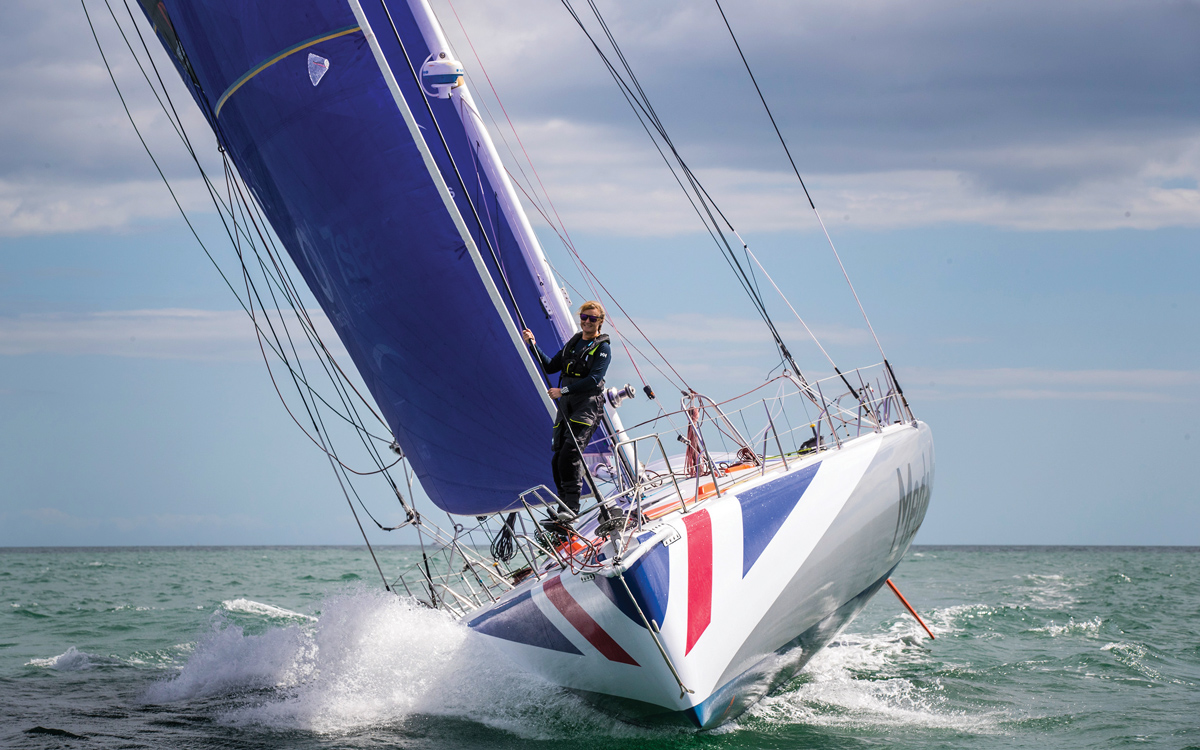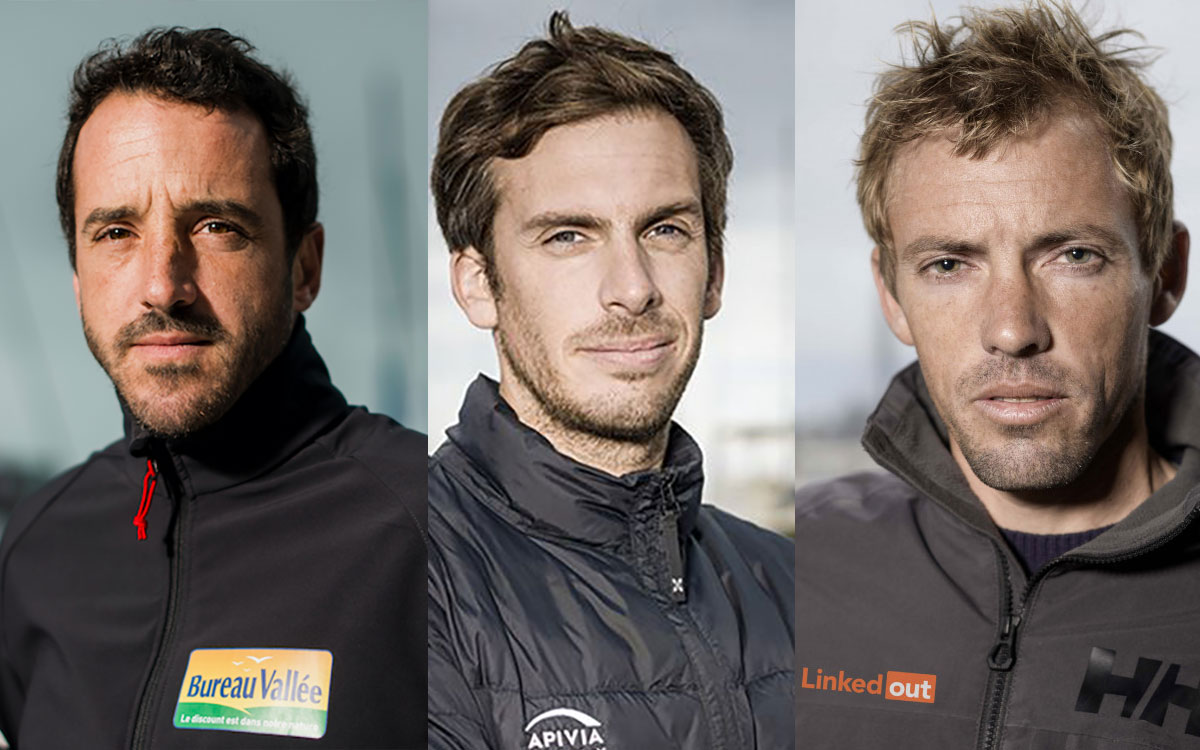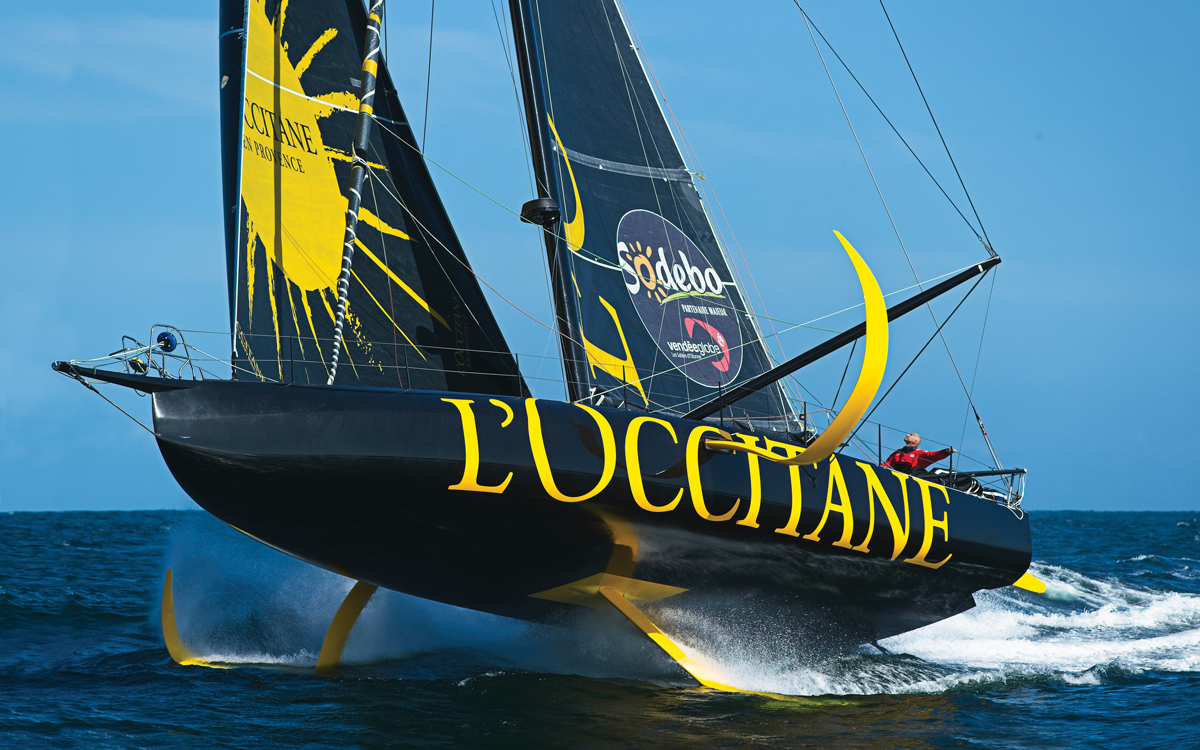A record fleet of 33 skippers have lined up in Les Sables d'Olonne for the 2020 Vendée Globe. Pip Hare explains how it feels to be one of them...
The Vendée Globe is the longest continuous racecourse in sport. Like some of the world’s great marathons, it offers something very rare: the opportunity for competitors from a wide range of backgrounds to race one another.
The Vendée Globe has a proud history of welcoming both the icons of the offshore sailing world as well as adventurers and rookies. The most experienced professionals, with multi-million Euro campaigns and leading edge designs, compete alongside more Corinthian entries with their big dreams and small budgets, older boats and hasty branding.
Vendée Globe hopefuls may be dreamers, but they must also be skilled and self-sufficient sailors. Stringent entry requirements demand that anyone qualifying for a place will have thoroughly proven themselves and their boats’ abilities (at least one major solo ocean race, and a 2,000-mile solo passage). Every competitor has earned their place through many hard miles and years of dedication.
 Watch the video
Watch the videoOn November 8, I will line up against 32 other IMOCA 60 skippers at the start of the Vendée Globe. With the second oldest boat in the fleet there is no chance that I can win this race. The idea is not even entertainable. So why race? The Vendée Globe is quite simply the toughest sailing event the world has to offer and my whole life I have aspired to be a good enough sailor to compete. This is my version of the Olympics.
What is the definition of success if you know you can’t win? To be honest I have been surprised by the amount of people who have asked that. I am entering the Vendée Globe as a competitor. I will be racing all the way around, pushing myself as hard as I can. Having an older boat does not diminish my sporting objectives, this is the greatest opportunity of my life, I will grab what I have with both arms and wring every ounce of performance I can from it.
To take part in the Vendée Globe has been a long-held ambition since I first read about the race in second-hand sailing magazines in my teens. Peter Blake was a big hero, and I was transfixed by stories from the Whitbread Race. For a while I even fixated on becoming a doctor, as that seemed the most likely way that a girl like me would get a place in one of these races.
Article continues below…
Vendée Globe 2020 contenders: Who will win the world’s toughest sailing race?
Not for nothing is the Vendée Globe referred to by many as the toughest race in the world. The singlehanded,…
Vendée Globe 2020 preview: Next generation foilers will sail on the limit
The world of single-handed offshore racing is a uniquely rarefied one. It’s an oft-quoted statistic that more people have been…

In order to cover every eventuality at sea, Vendée Globe skippers need to be familiar with their boat systems inside out
Then I read about Isabelle Autissier, who was competing in the BOC Challenge. Here was a woman, racing on equal terms with the men, in a huge boat, alone. Not only was the Vendée Globe race the most audacious sporting event I had ever read about, but it was open to me.
To achieve this ambition I followed my own development pathway. I started solo racing in 2009 in the OSTAR, which I raced in my 39ft Oyster Lightwave (which was also my home). With this experience I traded up to a Mini 650, which I raced twice across the Atlantic.
Jumping into the Mini allowed me to join some of the French training camps, where I learned the bulk of the skills I use today on my IMOCA. The competition was fierce, but the training collaborative and accessible. Many of the sailors I trained with during my two Mini campaigns can be found competing in Figaros, Class 40s, and sailing against me in this year’s Vendée Globe.

Lockdowns and COVID-19 restrictions mean time on the water has been precious this year for Pip Hare and Medallia – and everyone else
I also raced and coached extensively in the Class 40 circuit, but my Vendée ambitions gnawed away at me, and time relentlessly ticked on. So when the opportunity arose to charter a boat, at what seemed like an achievable monthly outlay, I took the biggest risk of my life and said: yes.
Twenty-one months ago, when I started my campaign. I’d never set foot on an IMOCA before. I had no title sponsor and no professional team, but I had the absolute conviction that I could make this happen.
Through 2019, I worked every second of every hour I could, all the while also fundraising and marketing to ensure I could cover the running costs of my IMOCA 60. Every month that I managed to survive felt like success, but the next hurdle always seemed bigger than the last.
Game-changer
My fairytale ending came in June this year when the CEO of Medallia, Leslie Stretch, contacted me out of the blue and became my title sponsor. Soon after they were joined by silver sponsor Smartsheet, another US tech firm. Since then my campaign has been turbo charged. We are still one of the smaller budgets in the fleet, but no longer scraping along.
I immediately engaged Joff Brown as my technical director, and over the last three months there has been a team working flat out to make upgrades to my boat. The signing of a title sponsor has allowed me to step back a little from the day to day running of the boat.
It has been difficult to do this. I have always prepared my own boats, from laminating to electronics, repairs to installations – because I’ve had to. It’s a big thing to trust that someone else is going to care as much as I do. But I know I have to let go and Joff has an incredible track record.

Still, I spend a lot more time with the boat than the skippers in bigger teams. I am on board daily, testing comms, managing the IT, practicing climbing the mast. I do all the deliveries. This makes me more hands-on as a skipper, and gives me more experience, but it also makes me more tired. The campaign runs like a business and I am the MD as well as the skipper.
It’s been a careful balancing act, investing in areas that will improve reliability and performance, but understanding that this is a 20-year-old boat and there is limited time – and I want to get in as much sailing as I can. When I cross the start line on 8 November, it will be in a boat that feels strong and that gives me confidence.
There are others like me in the fleet, the range of boat designs spans 20 years, and the range of budgets spans €20million. But we are all competing and have all faced a different set of challenges to get our places on the line.

Last year, when I raced in the class for the first time, I was acutely aware of the differences between campaigns; to look across at the gleaming Charal and think that I have anything in common with Jérémie Beyou felt crazy. However, there is a community within the fleet and a great camaraderie among the different projects.
Miranda Merron, one of the other British sailors, has been a constant source of good advice and guidance. She has considerably more ocean experience than me but is also running with a small team and an older boat. Ari Huusela uses volunteers to man his team and we speak often. Alexia Barrier has the only boat older than mine, and Benjamin Dutreux just signed a title sponsor. Many skippers’ stories are still evolving.
When I look at the fleet I divide it up into three categories: the untouchables (those I cannot beat), the aspirational (those I should not beat) and my competition (those I hope to beat). Those gradings are based on the reality of my – and their – performance and experience levels, as well as my desire to push as hard as possible. I have three overall objectives: to finish, to share an incredible story and to gain a solid foundation of learnings that will take me on to a supercharged race in 2024.

A sponsorship deal with Medallia has given Hare the opportunity to improve her 20 year old boat
Based in the UK, I have been naturally isolated from the rest of the class and I know I have missed out on the community feel of Port la Forêt, and the submarine base in Lorient, where the teams are in constant contact, train together and share resources.
In a strange turn of fate, the COVID-19 lockdown actually made me feel more a part of the group, as meetings migrated to online, everyone got a chance to speak and I actually felt more of an equal.
Now, as the race nears, there is still an element of this that does not yet seem real. Due to travel restrictions, briefings are virtual, and I have not competed in an IMOCA event this year. But there are moments when the reality jolts me. We got the dock plan through the other day and I will be next to Jean Le Cam – 2nd in the Vendee 2004/5, three times winner of the Solitaire du Figaro.
At a press conference I sat on stage next to Sam Davies, someone whose career I have greatly admired and envied. I can still see the double page spread of that magazine where I first read about the Vendée, and it’s like I have stepped into the pages. I feel like I have photobombed my heroes.
I am under no illusion: the race will be tough. I have looked at the covered cockpits of the new boats, all lines led aft, the sailors working in just mid-layers and Crocs, and I know my experience will be different. Medallia is a tough boat to sail. She was designed 20 years ago and though we have made a lot of upgrades there are some things which cannot be changed.

I have very little protection from the elements and am the only sailor who must perform every manoeuvre ‘outside’. My keel is powered by an electric winch, from down below, which makes tacking a more complicated process, especially in big breeze and big waves when the keel must be dropped to centre and the boat becomes difficult to control.
I think that my journey has made me more self-sufficient as a sailor, but I know that working in a small team, and managing the entire project myself has not given me as much time to prepare myself.
It has been a battle to get to the line, but that battle has prepared me for the race. Single-handedly creating a Vendée campaign from scratch in less than two years has stretched me in more ways than I thought possible; at times I thought I would break under the strain, but I did not.

I already feel like a winner because I am here, with an enthusiastic family of sponsors and supporters, a strong, beautiful boat, and an experienced team. There has already been disappointment as COVID-19 restrictions mean it is unlikely many friends and family will be able to see me off. But I will start this race with a lump in my throat and huge pride in what I have already achieved.
What happens after the start still seems far away. The Atlantic to Brazil I know well. After that it’s the Southern Ocean and into the unknown. I know I will be scared, overwhelmed, stressed. The power of my boat and the ocean cannot and should not be underestimated.
But I have the right tool for the job, my boat is strong and I am strong. These will be the toughest three months of my life, but I am ready.
First published in the November 2020 issue of Yachting World.






